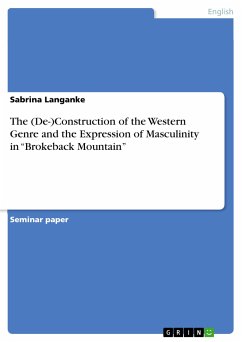Seminar paper from the year 2005 in the subject American Studies - Culture and Applied Geography, grade: 3,0, University of Kassel, language: English, abstract: In this paper, I will analyze Lyman Beecher's A Plea for the West with regard to his attitude towards immigration. In particular, I want to examine in how far the author supports the idea of nativism. On this account I will start by giving a definition of nativism and pointing out its different motivations; chapter 2.2 then shows the development of the concept as well as its political expression from the very beginning of the United States until now. Chapter three contains some background information, both about the author and the time he lived in, which I consider necessary for a deeper understanding of the primary source. The main part of my work, the analysis of A Plea for the West will follow in chapter four: At the beginning, I will describe what great potential the author sees in the American West and what problems he sees it faced with. Then, I will continue by investigating what attitude towards immigration in general and, in particular, towards Catholic immigration the author expresses in his work. What makes him support nativism, and which of its complex ideas does he support at all? Finally, I will point out what solution Lyman Beecher proposes for the problem of immigration in the American society with regard to the understanding of democracy he promotes in his work.
Dieser Download kann aus rechtlichen Gründen nur mit Rechnungsadresse in A, B, BG, CY, CZ, D, DK, EW, E, FIN, F, GR, HR, H, IRL, I, LT, L, LR, M, NL, PL, P, R, S, SLO, SK ausgeliefert werden.









